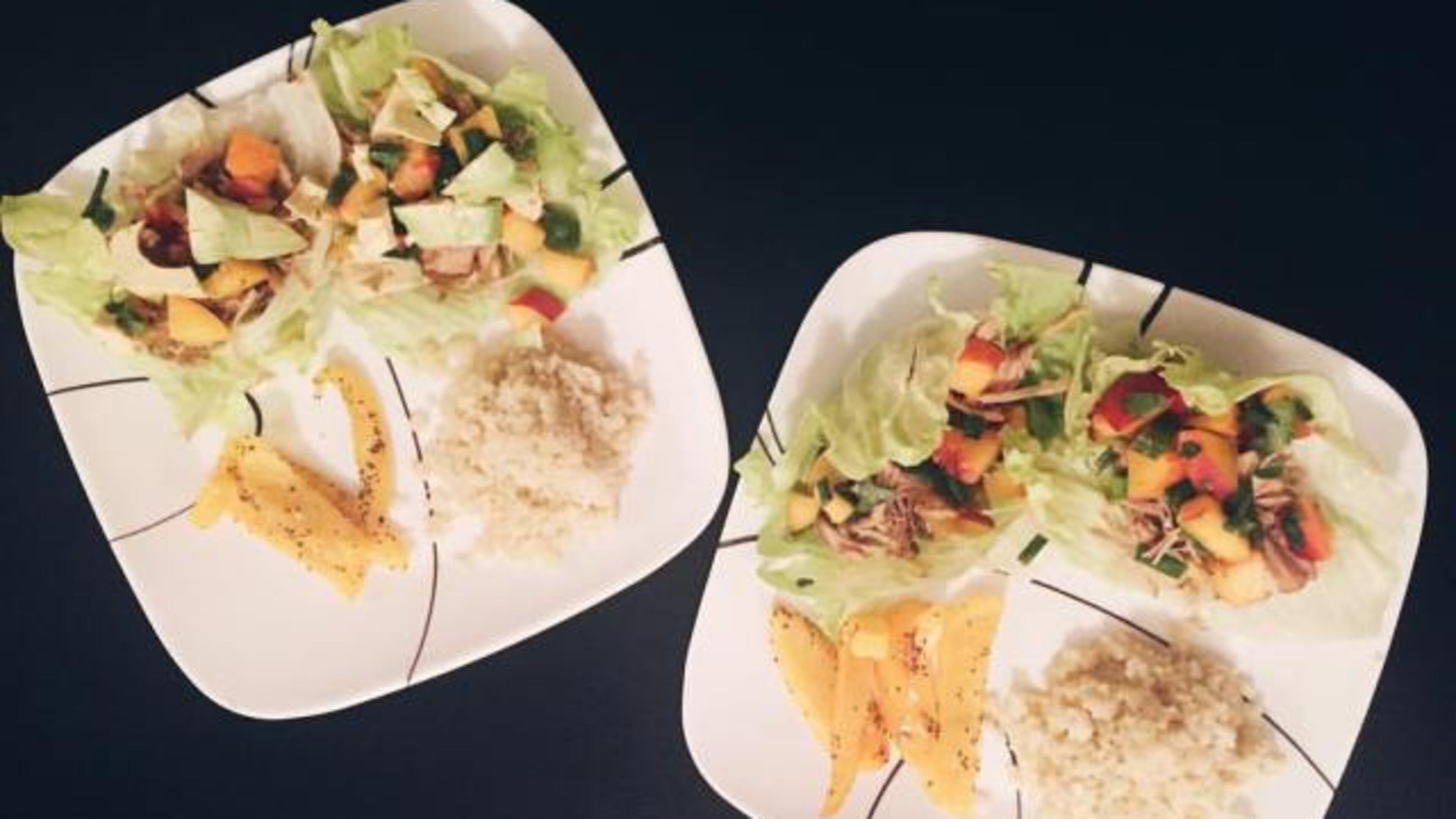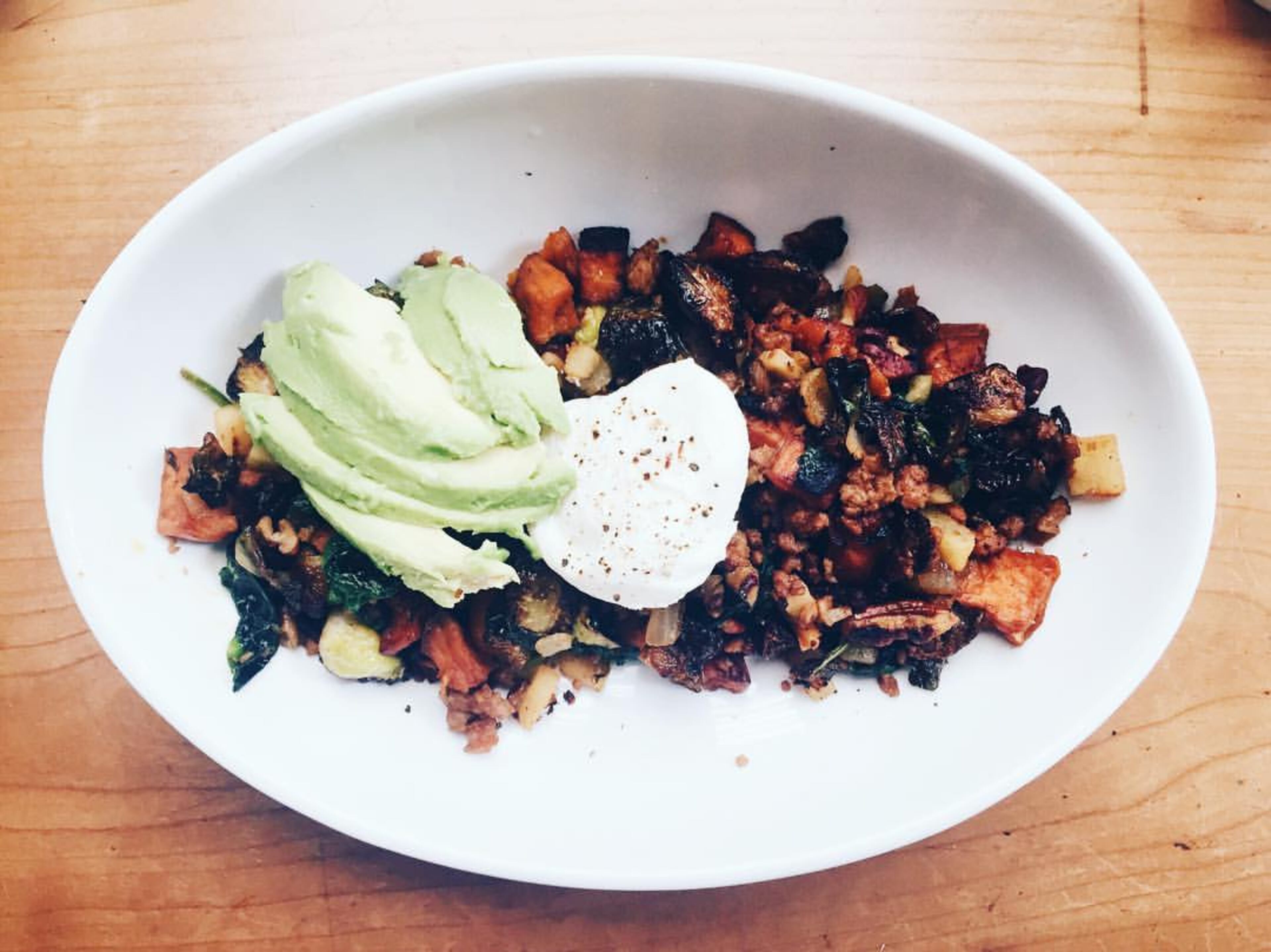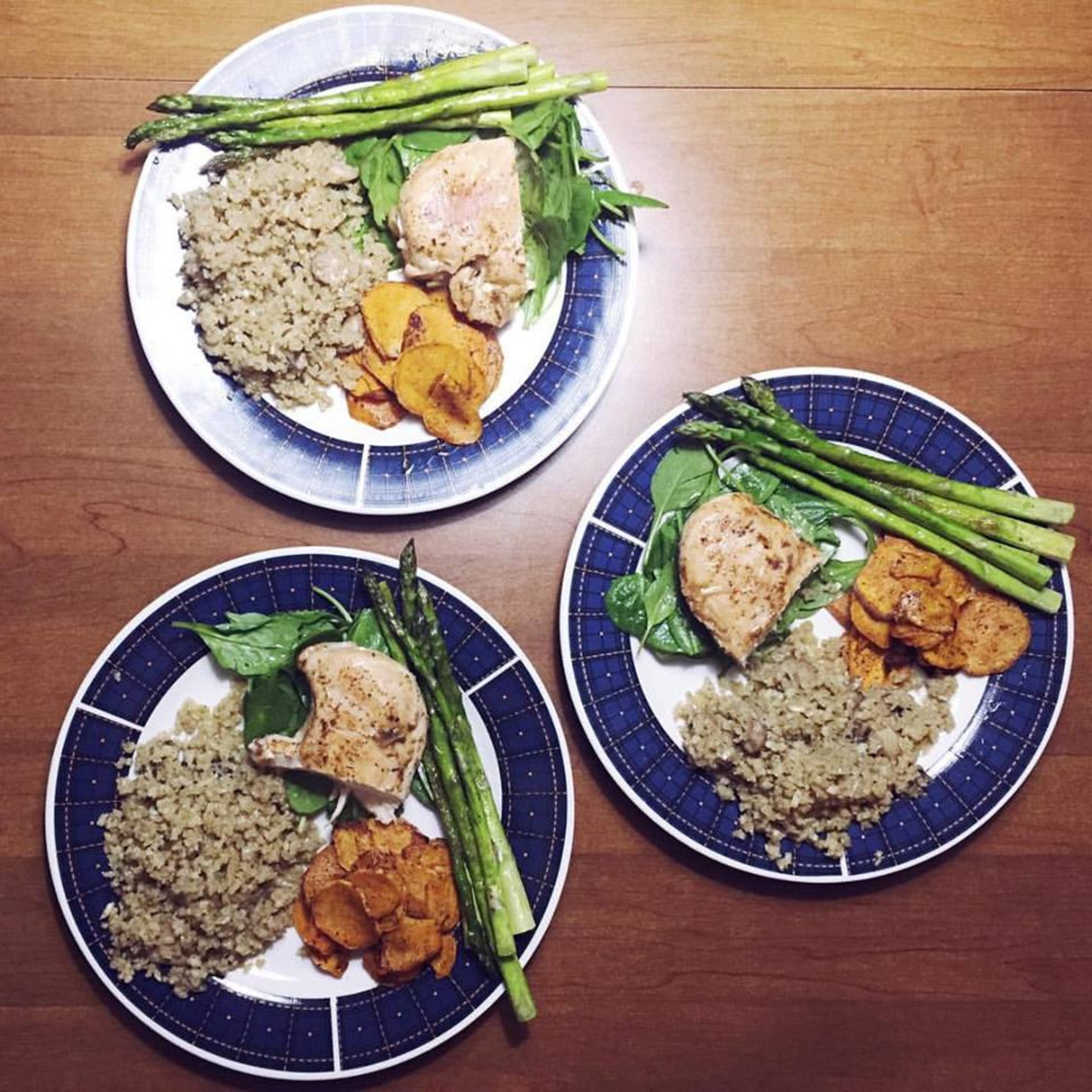Post-Whole30: What I learned after a month without dairy, grains, alcohol or sugar

Back in February, I wrote about my decision to embark on a new food journey: the Whole30. For those unfamiliar, Whole30 is a lifestyle program (I hesitate to call it a diet, because it goes a few steps beyond just telling you what to eat) which encourages eliminating "psychologically unhealthy, hormone-unbalancing, gut-disrupting, inflammatory food groups" from your body for a full 30 days. The program is aimed to help pinpoint which foods may have a negative impact on your physical and mental health by eliminating certain foods and then gradually reintroducing them after the 30 days were up.
The forbidden food groups? Grains, dairy, legumes, added sugar, alcohol and a handful of banned additives like MSG, sulfites and carrageenan—yeah, it’s no easy feat, and it meant checking labels constantly, and being the girl who had to disrupt brunch to ask questions like, “What type of oil do you cook your vegetables in?” It also meant eating a full three meals a day and a lot of cooking at home, which was extremely new for me.
» RELATED: 3 diets you should never try, according to Atlanta dietitians
Though I’ve been on a weight loss journey for about three months now, my main motivation behind trying the 30-day program wasn’t to shed inches or pounds (though after seven pounds and about 10 inches lost in just one month, that was a serious added bonus). I did it to work on changing my eating habits and my relationship with food. I’m currently clawing my way out of a downward spiral into a bout of depression and anxiety that lasted more than a year, intensified by a horrific breakup and getting laid off from my job. I took a lot of comfort in food—I never thought twice about treating myself to pizza or tacos or Whataburger, ironically because I was trying to be kind to myself. I thought I’d treat myself to unhealthy foods because I “deserved it” because everything else in my life felt so awful. All it did was cause me to gain more than 30 pounds over the course of a year, which left me feeling worse than ever. I needed a change.
So, on Feb. 1, I embarked on this journey to “food freedom” (that’s Whole30 slang for “not having an emotional connection to your food”), and here’s what I learned:
Food plays a huge role in mental health (and vice versa).
I have what my doctors initially called “atypical depression,” which is a type of major depression. It usually includes symptoms like weight gain, increased appetite, excessive sleep and fatigue (as opposed to decreased appetite, weight loss and the inability to sleep, which is referred to as “melancholic” depression). The other big indicator of atypical depression is frequent mood swings brought on by external circumstances. Basically, that means I can fall into a depressive mood if even the smallest bad thing happens throughout my day, but my mood can easily improve if something positive happens.
During my Whole30, I found myself having way more good days than bad ones, and it wasn't a coincidence. The connection between food and mental health has been heavily studied. According to Mental Health America, mental health can be negatively affected by habits like skipping meals, having too many sugary or caffeinated drinks or consuming high-fat dairy or fried and refined foods (all of which I was guilty of doing before the program).
Since my body was feeling healthier, my brain started feeling healthier too. Since I felt happier and more clear-headed, I wasn’t craving my go-to comfort foods anymore. It was a delightful healthy cycle.
Support is vital in any huge lifestyle change.
I mentioned before that two of my close friends, Melanie and Brittany, joined me in this month-long journey. We started a group text that pretty much didn’t stop for the whole 30 days, and we stayed in constant communication, sharing recipes and food photos and “God, I could really use a cheeseburger” struggles. It was invaluable. And while these girls and I were close before, the experience brought us together even more. They were my sisters in this journey, and I couldn’t have done it without them. So often, women are pitted against each other when it comes to body image, but this process made me feel incredibly lucky to have friendships full of emotional support and encouragement rather than jealousy or spite.

Sugar is everywhere, and it does weird things to your body.
Y’all, there is sugar in everything. EVERYTHING. I read hundreds of labels and had to say “no” to dozens of foods during this process, just because everything has added sugar. I didn’t realize how reliant my body was on all this added sugar until about two weeks into the program, after my sugar detox headaches went away. I was sleeping better and sleeping deeper (which also led to some really vivid dreams, apparently fairly common in this part of the process). Despite the crazy dreams, it felt like that was how my body was supposed to operate: Sleeping when it was tired, not being propped up by sugary drinks to help me stay awake or empty calories to give me fake “energy.” By the end of the 30 days, I had more energy than I ever did when I was pouring sugar into my body.
Think your body can process dairy? You’re probably wrong.
Y'know how your parents always told you to "drink your milk?" Maybe they shouldn't have. It turns out our bodies aren't really great at processing dairy. According to a report from ABC News, doctors say it's actually really common to be lactose intolerant. Less than 40 percent of the entire world has the ability to process dairy, which means that your body is probably sensitive to dairy even if you don't know it. I found this out the hard way, when post-Whole30 I reintroduced dairy into my diet in the form of a few spoonfuls of yogurt, and well, I nearly had to call in sick to work that day.
Yes, milk contains nutrients like calcium, potassium and vitamin D. But according to WebMD, some doctors believe milk actually contains too much potassium. It's also relatively high in calories, and for those whose stomachs don't really love breaking down dairy (like mine), it may be better to get your calcium and potassium elsewhere (eating lots of fruits and vegetables helps with this).
So, while dairy isn’t exactly bad for you, it’s not great for you, either.
» RELATED: Forget the fad diets: 4 weight loss tips from Atlanta dietitians that really work
Social outings are still fun without alcohol.
On the first day of my Whole30, I went to a Surfer Blood show at The Parish with my best friend. I was nervous about not being able to have my requisite tall-boy Lone Star (it’s more of a social crutch than anything else—I need something to do with my hands!) so instead I opted for a Topo Chico with lime, and you know what? I still had a great time. So many social outings are focused around alcohol, but I’ll trade my Lone Star tallboys for waking up without a hangover any day.
Eating more doesn’t mean you’ll gain weight.
I ate so much food during the Whole30. Since the program advises against snacking, I wanted to make sure my meals were big enough to tide me over until it was time to eat the next meal. I felt uncomfortably full sometimes, especially after eating a large breakfast (I was used to not eating breakfast at all), but I rarely felt hungry. And I still lost seven pounds, so don’t let anyone tell you that cutting calories is the only way to lose weight.

Doing dishes is the least fun of all the household chores.
I didn’t mind doing dishes before. Now, the thought of washing dishes sends me into a blind rage. I probably washed the same pans 90 times in a 30-day period. If somebody can recommend a dishwasher that loads and unloads itself, I’ll spend my life savings on it.
There are an infinite number of ways to cook an egg.
Poached, scrambled, hard-boiled, soft-boiled, omeletted—I tried ’em all. And I got kind of good at it! I’ve never been a particularly skilled cook, but I surprised myself every day with how delicious the food tasted. I felt like Bobby Flay in my kitchen. I only burned a few dishes and only sliced my fingers open a few times, so that’s a success in my book.
My willpower is way stronger than I ever thought.
I said “no” to more doughnuts and cookies than I ever thought I’d be able to. If you don’t work in the journalism industry, you may not know that a newsroom is really not the best place to try to be a healthy eater. At least once a day, a newsroom-wide email slides into my inbox with a title like “Doughnuts in metro” or “cookies by the features department” — it’s basically just Mad Libs: “Come eat the [sugary food] in [newsroom department]” and y’all, it’s so hard to turn down. But every time I said no, I felt a little stronger.
30 days with a new habit can change your life—but it doesn’t end there.
I'd be lying if I said I've eaten like a perfect paleo angel after the Whole30 ended. I've had more than a few beers and more than a few cookies. I ate tater tots covered in queso and washed it down with a Lone Star (my stomach hated me afterward, so I paid for it in full). It's proof that I can still enjoy the finer things in life without going overboard (I mean, I would've never ordered a hamburger with lettuce instead of a bun before this experience), but it's also proof that changing your eating habits is a lifelong journey, and there's no "quick fix". I hope to start my second round of Whole30 in April, after my friend's wedding. And oh yeah, that bridesmaid dress I mentioned before? It's too big now.

